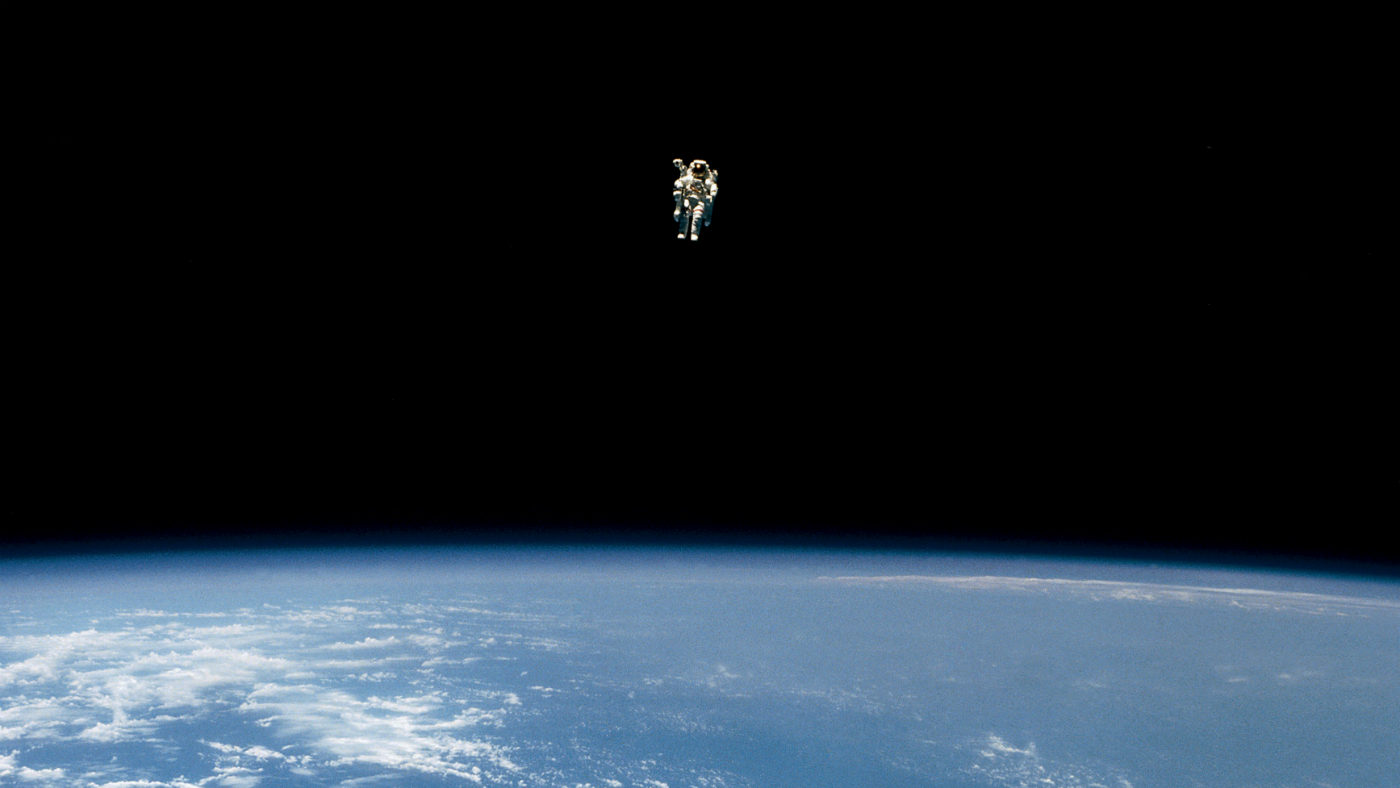What space does to the human body
Nasa’s landmark Twins Study reveals physical ‘resilience’ of astronauts

A free daily email with the biggest news stories of the day – and the best features from TheWeek.com
You are now subscribed
Your newsletter sign-up was successful
A landmark new study on the effects of spaceflight on the human body has found that fears about the potential health risks to astronauts may be overblown.
Nasa scientists teamed up with medical experts to examine recently retired astronauts Scott and Mark Kelly, who are identical twin brothers.
Scott was part of a Nasa team who worked on board the International Space Station (ISS) in 2015, spending a total of 342 days in space, while Mark remained on Earth.
The Week
Escape your echo chamber. Get the facts behind the news, plus analysis from multiple perspectives.

Sign up for The Week's Free Newsletters
From our morning news briefing to a weekly Good News Newsletter, get the best of The Week delivered directly to your inbox.
From our morning news briefing to a weekly Good News Newsletter, get the best of The Week delivered directly to your inbox.
Researchers “followed the duo before, during and after the flight, tracking the twins’ biology to see how the brothers changed”, reports Space.com.
The so-called Twin Study represents “an integrated portrait of molecular, physiological, and behavioral adaptations and challenges for the human body during extended spaceflight”, the scientists say in their report, published this week in the journal Science.
Although the team found that living in a zero-gravity environment has an undeniable impact across the human body, the long-term outlook for astronauts was both “surprising and reassuring”, says ScienceDaily.
Spending almost a year on the ISS put Scott’s body “under incredible stress”, with fluids swelling his upper body and head, and his immune system going into overdrive, reports Space.com.
A free daily email with the biggest news stories of the day – and the best features from TheWeek.com
He also experienced “thickening of the carotid artery and retina, weight loss, shifts in gut microbes, reductions in cognitive abilities, DNA damage, changes in gene expression, and a lengthening of the ends of chromosomes called telomeres”, adds Irish broadcaster RTE.
Yet despite this, experts say the study has revealed the “resilience” of the human body, with most of the adverse effects suffered by the astronaut proving temporary.
“If you look at the changes we’re seeing in Scott, the vast majority of them came back to baseline in a relatively short period of time when he came back to Earth,” said Steven Platts, deputy chief scientist for Nasa’s Human Research Programme.
The chief scientist for the project, Jennifer Fogarty, said that Twins Study had proved that a “number of physiological and cellular changes take place during spaceflight”, but crucially “demonstrated how a human body adapts and remains robust and resilient even after spending nearly a year aboard the ISS”.
Experts say the findings may be vital in predicting the effects of an extended manned mission to the Moon or Mars.
According to the Smithsonian magazine, an exploratory Mars mission could take two or three years, while most space expeditions so far have lasted six months or less.
J.D. Polk, the US space agency’s chief health officer, said the study had “helped inform the need for personalised medicine and its role in keeping astronauts healthy during deep space exploration, as Nasa goes forward to the Moon and journeys onward to Mars”.
But The Atlantic argues that the findings “cannot be extrapolated to the wider astronaut population, let alone the general population”, owing to the small sample size.
The magazine also notes that the space station is within Earth’s gravitational sphere of influence, which means the findings many not be “useful for predicting what might happen to humans if they venture beyond the orbit of the ISS”.
“[On the ISS], astronauts receive ten times the usual amount of radiation, high-speed particles from the sun or from other sources in the cosmos,” The Atlantic adds. “Out there, the exposure would be far worse.”
-
 Minnesota's legal system buckles under Trump's ICE surge
Minnesota's legal system buckles under Trump's ICE surgeIN THE SPOTLIGHT Mass arrests and chaotic administration have pushed Twin Cities courts to the brink as lawyers and judges alike struggle to keep pace with ICE’s activity
-
 Big-time money squabbles: the conflict over California’s proposed billionaire tax
Big-time money squabbles: the conflict over California’s proposed billionaire taxTalking Points Californians worth more than $1.1 billion would pay a one-time 5% tax
-
 ‘The West needs people’
‘The West needs people’Instant Opinion Opinion, comment and editorials of the day
-
 NASA’s lunar rocket is surrounded by safety concerns
NASA’s lunar rocket is surrounded by safety concernsThe Explainer The agency hopes to launch a new mission to the moon in the coming months
-
 Nasa’s new dark matter map
Nasa’s new dark matter mapUnder the Radar High-resolution images may help scientists understand the ‘gravitational scaffolding into which everything else falls and is built into galaxies’
-
 Moon dust has earthly elements thanks to a magnetic bridge
Moon dust has earthly elements thanks to a magnetic bridgeUnder the radar The substances could help supply a lunar base
-
 How Mars influences Earth’s climate
How Mars influences Earth’s climateThe explainer A pull in the right direction
-
 The ‘eclipse of the century’ is coming in 2027
The ‘eclipse of the century’ is coming in 2027Under the radar It will last for over 6 minutes
-
 NASA discovered ‘resilient’ microbes in its cleanrooms
NASA discovered ‘resilient’ microbes in its cleanroomsUnder the radar The bacteria could contaminate space
-
 Artemis II: back to the Moon
Artemis II: back to the MoonThe Explainer Four astronauts will soon be blasting off into deep space – the first to do so in half a century
-
 The mysterious origin of a lemon-shaped exoplanet
The mysterious origin of a lemon-shaped exoplanetUnder the radar It may be made from a former star